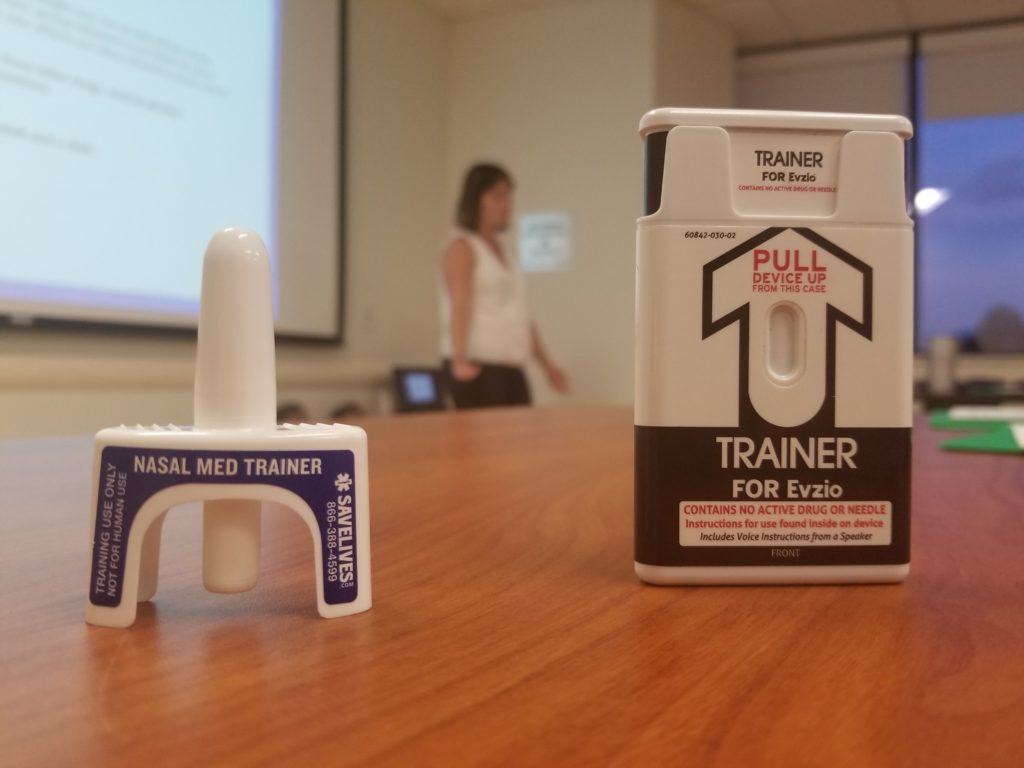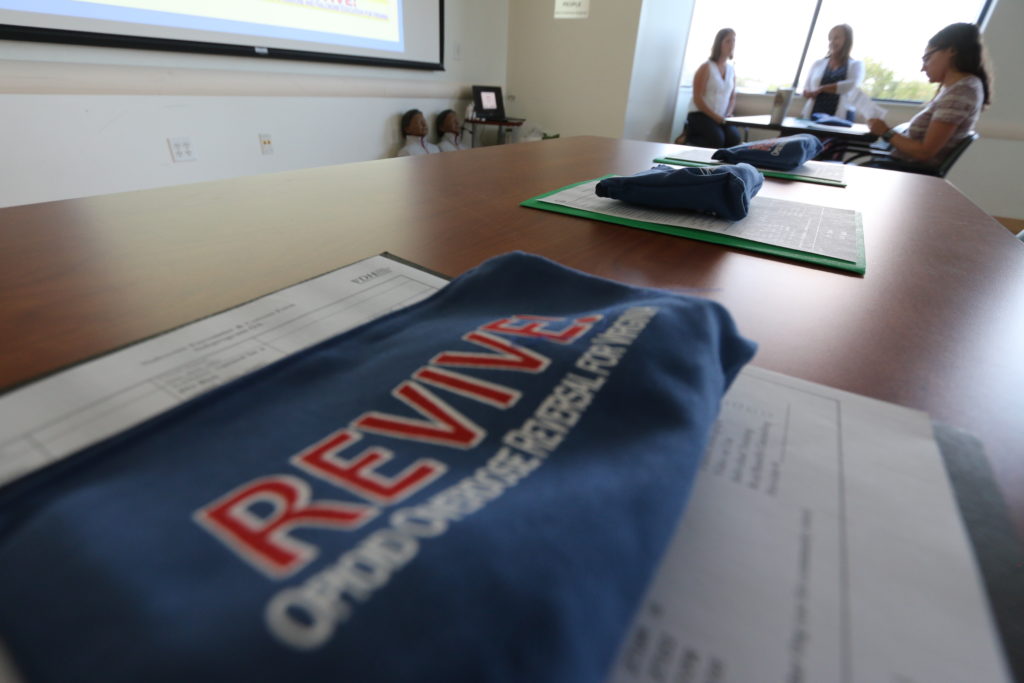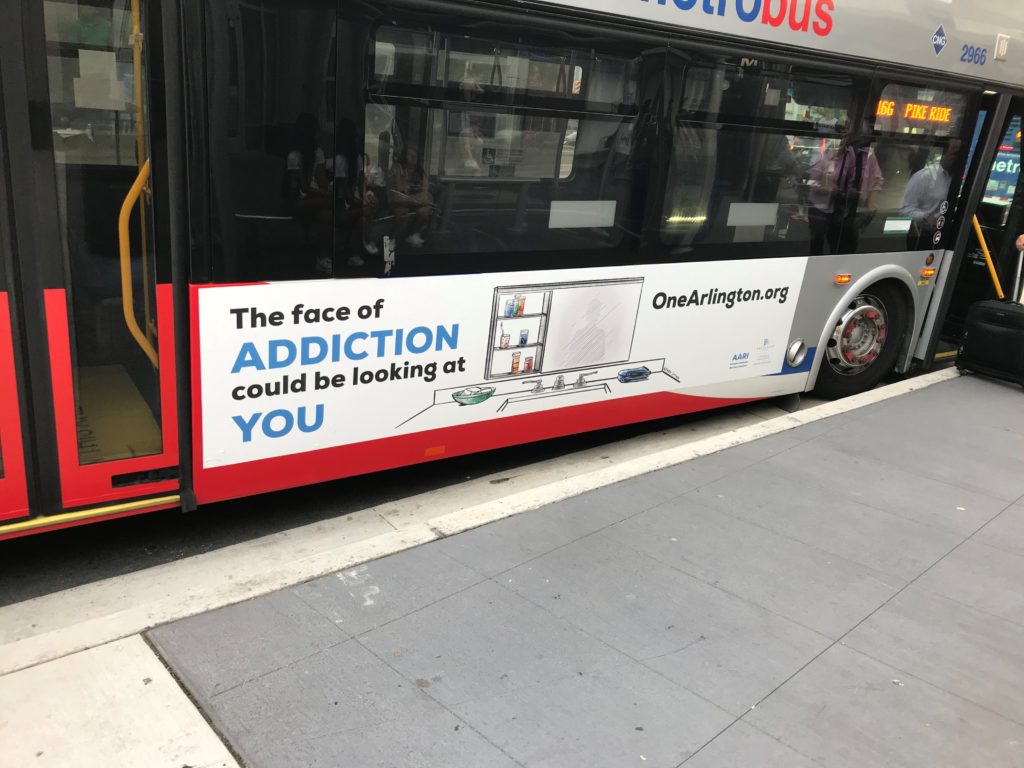Arlington is training hundreds of people to use the opioid overdose-reversing drug naloxone in hopes of saving lives amid the opioid crisis.
The free trainings last a little over an hour and teach participants how to recognize an opioid overdose and to administer naloxone, also known by the brand name Narcan. As of Tuesday night, officials said Arlington has trained 644 people and given away 518 boxes of the drug.
Studying to Save Lives
Emily Siqveland is the county’s coordinator for the state-funded Revive program, which provides the training materials for the classes.
“I often remind people that addiction is similar to diabetes,” said Siqveland, in front of the half a dozen people who showed up to the Arlington Mill Community Center Tuesday night to take one of the classes.
“You can make lifestyle adjustments to manage your diabetes,” she said. “Addiction is the same. You can make lifestyle changes to manage the addiction, and you still need treatment. It’s still a chronic and relapsing disease.”
In addition to talking about how addiction works, Siqveland showed attendees how to administer the little white nasal spray as part of the county’s “multi-disciplinary approach” to tackling the opioid crisis.
Arlington began marshaling representatives from county agencies, local non-profits, and APS in 2017 to form an Arlington Addiction Recovery Initiative (AARI) to find solutions and hold several town halls.
One of the group’s more recent tasks was choosing how to spend $258,000 in state grants for treatment and prevention services.
One way AARI allocated the funds is a new ad on the side of local Metrobuses, featuring the county’s opioid resources page, plus “remembrance trees” currently on display in the Shirlington, Columbia Pike, and Central libraries until September 3. People can add a leaf to the trees in memory of someone they know who died from opioid addiction.
Addiction by the Numbers
In Arlington, police reported 53 overdoses in 2018, 11 of which were fatal.
The data indicated that seven fewer people died overdosing on opioids in 2018 compared to 2017 (19). However, the overall number of opioid-involved incidents (153) in 2018 remained steady after jumping to 157 incidents in 2017. In all, 50 opioid overdose deaths have been reported in Arlington since 2014.
“My guess is that overdoses are going unreported to the police because we have Narcan in our community, so they don’t need to be reported to the police,” said Siqveland on Tuesday. “We recommend that you call 911 to get additional medical treatment, but you can save a person’s life without calling 911.”
The number of people diagnosed with an addiction to opioids in Arlington soared by 245% from 2015 to 2017. So, too, has the number of people participating in the Arlington Department of Human Services’ opioid addiction treatment program, which uses medications like buprenorphine to help wean people off the drugs.
The program has served 41 people the year so far, up from 34 patients last year and 18 patients in the first year, according to Siqveland.
The county has also unveiled a new program to encourage people to turn themselves and their drugs in to the Magistrate’s Office in exchange for treatment and no jail time.
‘Did I Take My Pain Pill?’
Michele Fletcher, a public health nurse with DHS who co-led the class, emphasized that the life-saving drug wasn’t just for people with addictions.
“This is important to know for your elderly person who has a lot of prescription medicine and they’re thinking, ‘Did I take my pain pill? I can’t remember if I took my pain pill. Let me take another pain pill,'” she said.
Toe help prevent accidental overdoses, Arlington accepts leftover medications at several drug take-back boxes. Siqveland said the county has collected almost 2,500 pounds of prescription drugs since May 2018.
She recommended anyone interested in learning more about efforts to stop the opioid crisis attend one of AARI’s public meetings, which happen the fourth Thursday of every month at 2 p.m. in the headquarters of the Department of Human Services (2120 Washington Boulevard).
Data from Arlington County Police







